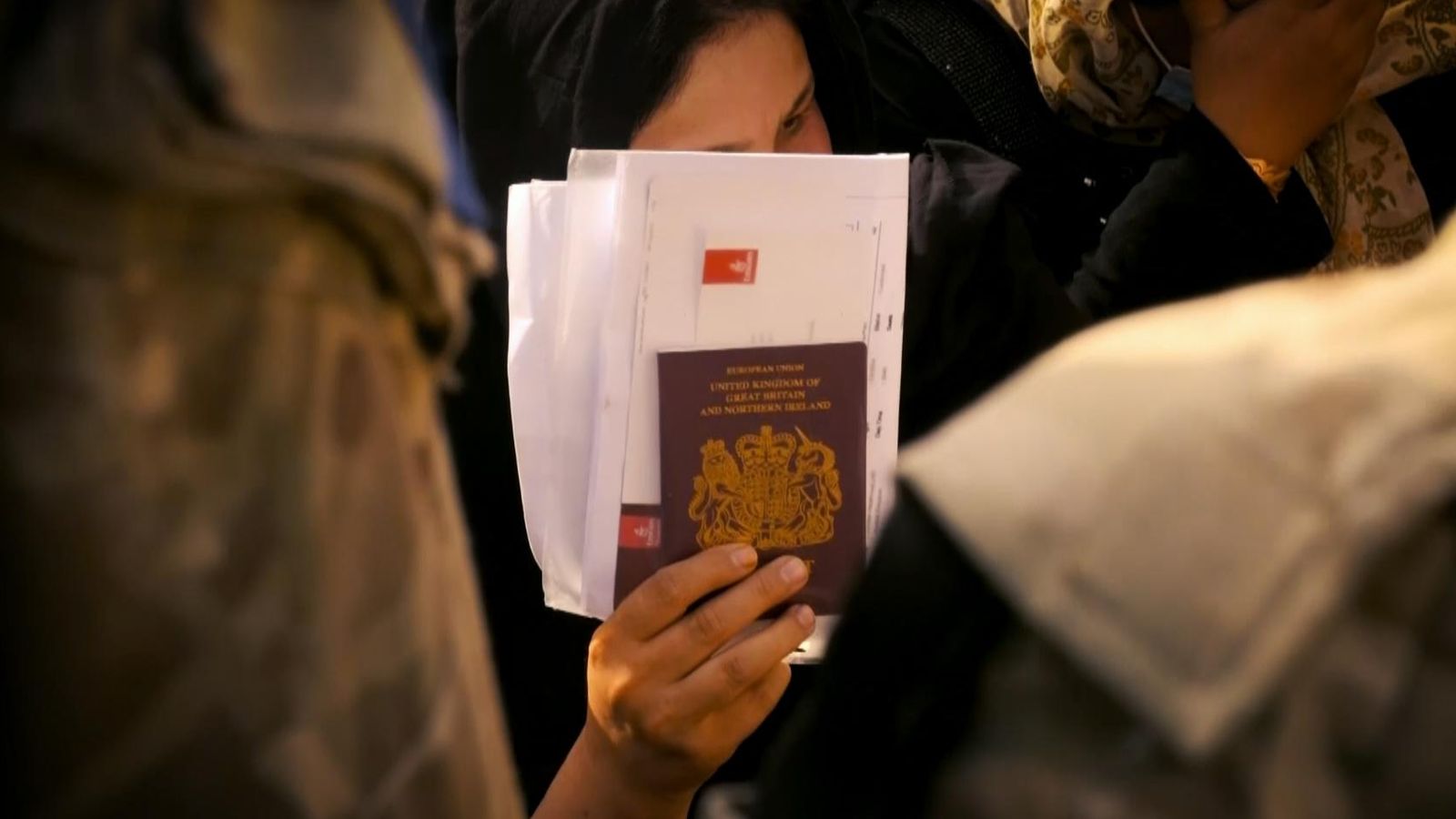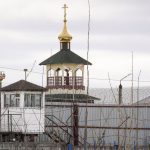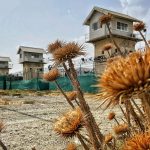At least six translators who worked for the British Army in Afghanistan and were left behind during the chaotic evacuation last summer have taken legal action against the UK government, Sky News has learnt.
Their solicitor has described the processing system as “appalling” after four of the six were rejected, then given approval to come to the UK after legal papers were lodged.
One of the men – who we are not naming to protect his identity – says he feels stranded in Afghanistan.
He is among 750 Afghans who have been accepted to come to the UK but are still thought to be stuck in the country.
The man failed to get on an evacuation flight with his family last August.
After his relocation application under the ARAP (Afghan Relocations and Assistance Policy) scheme was rejected, he lodged a legal challenge.
His application was approved in February and in May he was told to await instructions about how to leave Afghanistan via a third country – which he is still waiting for.
Out of Afghanistan: Integrating and making friends
Out of Afghanistan: Starting life in the UK
Out of Afghanistan: Chaos in Kabul
He told us: “I’m really afraid and I’m in hiding. I’m feeling so unhappy. I live like in a prison. My message to the British Army ‘we saved the lives of the British soldiers and now it’s time to save my life and my family’s life’.”
Two other former translators have issued proceedings for a judicial review into their case, including a man living in a hotel room in Pakistan with his wife and five children. He says he managed to escape from Afghanistan with the help of the Canadian government.
Solicitor Qays Sediqi said: “The overall handling of the scheme, in spite of reassurances, has been appalling.
“These individuals – if they didn’t have legal representation – would be left stranded in Afghanistan or a third country where they have no right of residence.”
When the Taliban retook control of Afghanistan last August the chaotic withdrawal of Western forces led the UK government to admit that people they had hoped to evacuate would be left behind.
But a year on we have spoken to Afghans in multiple locations who say they are living in fear and still hoping to reach the UK.
In addition to the 750 already accepted for relocation, around 8,000 more Afghans (inclusive of their dependants) are also thought to be eligible.
It’s understood around 120,000 applications have been made for the ARAP scheme. An unknown number of those will be duplicate applications.
The Ministry of Defence said it “regrets” delays but is putting more resources into identifying eligible applicants.
A woman who was in the Afghan army’s special forces spoke to us in tears from Turkey.
She is living in fear of Turkish authorities, who have begun deporting Afghans back to Afghanistan, and is unsure if she’s eligible to come to the UK but says she can’t go back to Afghanistan.
I asked her if she regretted joining the fight against the Taliban alongside the British. She said: “I do not regret it, but when I’m thinking about my current situation I’m living in another country and completely forgotten – especially by the British government.”
The Home Office said it does not comment on individual cases but successful applicants for the ARAP scheme are subject to “necessary security checks”.
A spokesperson said: “If someone Is assessed as presenting a risk, appropriate action will be taken.”
ARAP was launched in April 2021 and more than 10,000 people have been relocated so far, including people evacuated from Kabul during Operation Pitting last August.
Pitting was the largest UK military evacuation since the Second World War, during which 15,000 people were brought to the UK.
Since then, a further 4,000 have arrived via neighbouring countries.
A Ministry of Defence spokesperson said: “We continue to relocate eligible Afghans who worked with the UK armed forces under the ARAP scheme and are working with partners in the region to bring out as many people as we can on a regular basis.
“All applications are assessed on a case-by-case basis. Processing timelines vary due to the complexity and personal circumstances of each applicant and we regret any delays as we work through complex cases.
“We are investing in a new casework system, putting in more resource and adapting our approach to make it easier and quicker to identify and process applications from eligible Afghans.”
The ARAP scheme was set up to relocate those who worked for and alongside the UK’s armed forces and is not intended as an open resettlement scheme for all Afghans wanting to relocate to the UK.
The government has pledged to relocate up to 20,000 vulnerable individuals under the Afghan Citizens’ Resettlement Scheme (ACRS). These include female judges, members of the LGBTQ+ community and human rights defenders.
Sky News follows the stories of some of the Afghans who came to the UK in the new podcast Out of Afghanistan.
They share their experiences of their journey to Britain, trying to adjust to a new culture and finding homes, friends and jobs.
Subscribe to Out of Afghanistan on Apple Podcasts, Spotify and Spreaker






















